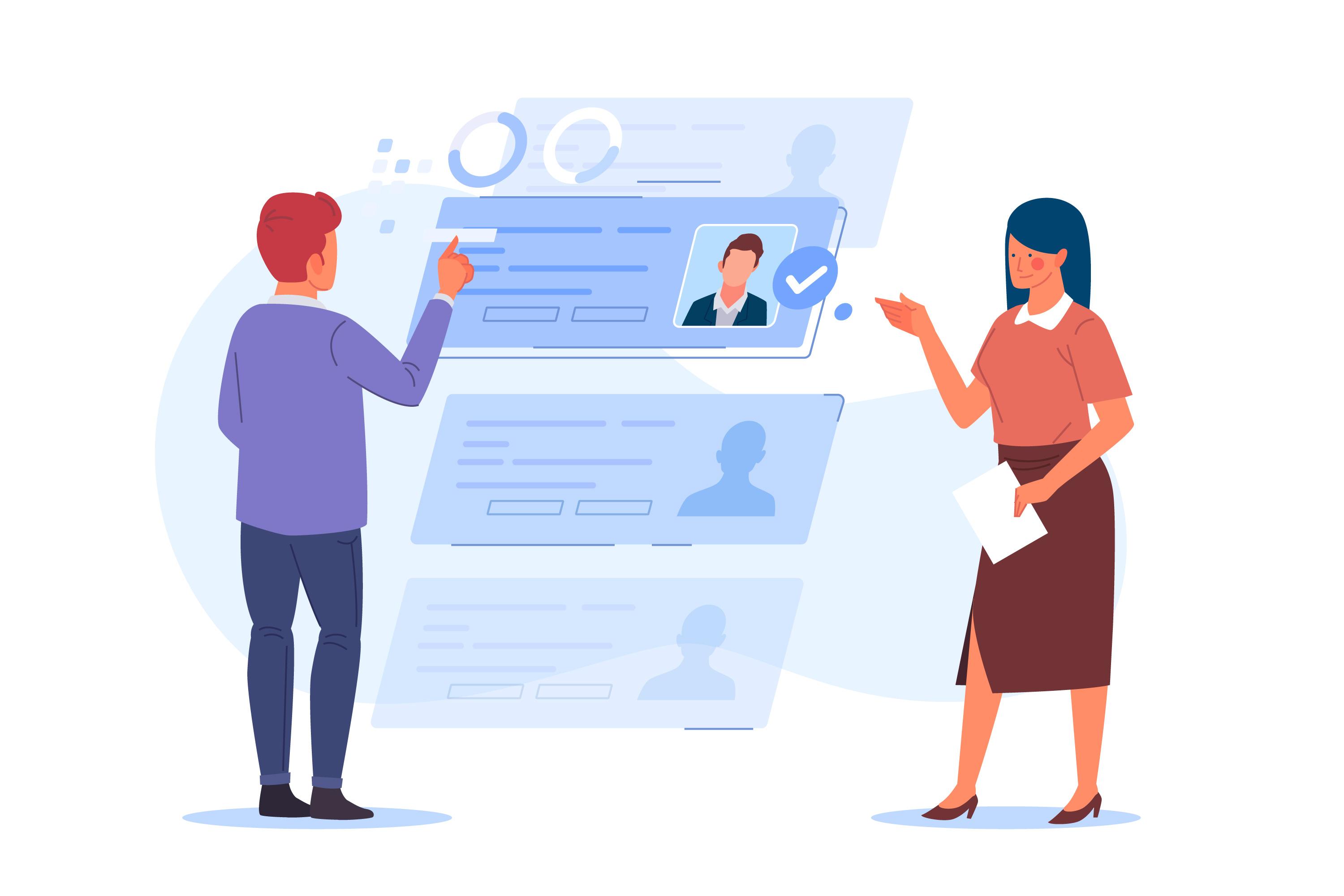
Empower your tech teams with customized, hands-on IT training in DevOps, QA, UI/UX, and more designed for scalability and measurable results.
In today's fast-evolving corporate world, enterprise upskilling isn't just advantageous, it's imperative. Companies that commit to consistently enhancing their workforce’s capabilities gain an edge in innovation, productivity, and adaptability. Whether you're a tech giant or a growing firm in Lagos, upskilling can unlock latent potential within your teams, driving measurable business outcomes.
At the heart of this lies DelonAcademy, an enterprise-focused learning provider offering tailored IT training, from UI‑UX design to DevOps, QA, backend development, and more. Their scalable solutions are engineered to align organizational goals and bridge skill gaps efficiently.
Let’s explore how to upskill your enterprise workforce effectively through a strategic, actionable framework.
Begin with Precision: Skills Gap Analysis
- Why it matters: Without understanding your team’s current capabilities versus future needs, any training risks being misaligned or underwhelming.
- How to do it:
- Run technical assessments and surveys.
- Hold strategic workshops with department heads.
- Use insights from current business goals—say, launching a mobile app—to identify missing competencies (e.g., Android/Kotlin or iOS/Swift).
- DelonAcademy alignment: Offers a broad catalog; UI‑UX design, frontend development, backend development, DevOps, QA, data management and mobile app development—that helps fill identified gaps across IT domains.
Leverage Tailored Learning Platforms & Modalities
- Learning formats:
- Hands-on workshops for real engagement.
- Online modules for flexibility.
- Blended delivery for scalability across geographies.
DelonAcademy’s approach:
- Offers onsite or remote enterprise training, at flexible pricing.
- Trainers from Nigeria, the US, the UK, and Pakistan—bringing global best practices to local teams.
- Project-based learning with post-training assessments and reinforcement ensures retention.
Curate the Right Mix of Hard and Soft Skills
- Hard skills: Programming (Python, JavaScript, C#, .NET), mobile (Android/iOS), QA (Selenium, JMeter), DevOps (Azure), data & analytics.
- Soft skills: Agile, Scrum, communication, collaboration—vital for team cohesion and productivity.
- Balanced approach: Enterprise teams thrive when they're technically competent and agile, communicative, collaborative.
Foster a Culture of Continuous Learning
- Embed learning into daily workflows: Allocate time for courses, peer-teach sessions, and innovation workshops.
- Incentivize growth: Recognize milestones; completion, certifications and project success.
- Peer networks: Encourage sharing via internal forums or study groups.
- Delon’s role: Their training, delivered by seasoned practitioners, fosters confidence and lasting learning; students cite real value in mentorship and peer interaction.
Track Metrics & Iterate
- Key performance indicators (KPIs):
- Completion rates
- Time-to-proficiency
- Quality improvements
- Business impact (e.g., faster delivery, reduced defects)
- Feedback loops: Gather learner feedback, update curricula, shift focus where needed.
- Delon’s offering: Includes follow-up coaching, assessments, and reinforcement, critical for measuring and enhancing long-term skill retention.
Optimize & Scale Over Time
- Start with pilot cohorts, refine, then scale organization wide.
- Keep content fresh: Add emerging tech modules—AI, cloud, data science and cybersecurity to stay current.
- DelonAcademy’s versatility: Offers a breadth of modules and delivery modes, ideal for dynamic scaling across departments or geographies.
Leverage External Credibility & Local Context
- ISO 9001:2015 certified: Ensures quality and process rigor, especially important for corporate clients.
- Nigeria-grounded: Deep understanding of local enterprise needs melded with global standards, an advantage for companies operating within Lagos and beyond.
Design a Step-by-Step Upskilling Implementation Plan
Even the most brilliant training ideas fail without proper execution. A step-by-step implementation plan helps ensure success across departments, regions, and time zones.
Step 1: Get Leadership Buy-in
Without support from C-level and departmental heads, most upskilling plans won’t go far. Here's how to get alignment:
- Present the business case: “Our QA process is delaying feature releases by 30%; upskilling testers on Selenium automation will cut that by half.”
- Showcase projected ROI and case studies.
- Involve them early in program design.
Step 2: Prioritize Roles
Not every team needs upskilling at once. Prioritize based on:
- Strategic importance
- Technology maturity
- Risk factors
- Employee turnover
For example:
- Start with DevOps if infrastructure bottlenecks are hurting deployment frequency.
- Prioritize UI/UX if customer retention is declining due to poor usability.
Step 3: Define Timelines
Map out a 6 to 12-month calendar with phases:
- Pilot → Scale → Optimize
- Include feedback checkpoints and reassessments
Step 4: Allocate Budgets
Factor in:
- Training provider costs
- Internal time/resources (e.g., mentors, shadowing)
- Certification costs
- Productivity trade-offs
Pro Tip: DelonAcademy offers cost-effective packages tailored to team size and tech stack, making budgeting more predictable.
Building a Continuous Feedback Loop
Upskilling shouldn't be a static process. Make it adaptive using feedback and performance metrics.
What to track:
- Learner satisfaction (via surveys)
- Assessment scores for pre- and post-training
- Manager feedback on performance improvements
- Adoption of new tools or frameworks
- Project success rates after training
Tools to use:
- Internal HR dashboards
- Quarterly performance reviews
Insight: Programs that adapt based on this feedback deliver 34% higher ROI over 12 months (according to LinkedIn Learning research, 2024).
Common Pitfalls to Avoid
Here are the top mistakes that undermine enterprise upskilling efforts:
- Generic training content
One-size-fits-all courses waste time and fail to address your tech stack. - No reinforcement post-training
Learners forget 70% of content within 3 weeks if not reinforced. - Lack of business alignment
Training must map to key OKRs—like release velocity, customer experience, or system stability. - Poor learner engagement
Dull, theoretical content disengages teams—use projects and real-life scenarios instead.
Align Upskilling with Career Pathways
- Why it matters: Employees are more motivated when training aligns with clear growth opportunities.
- Action steps:
- Map training programs to internal career ladders (e.g., Junior Developer → Mid-Level → Lead).
- Incorporate certification tracks (e.g., Azure DevOps Expert, ISTQB for QA).
- DelonAcademy fit: Offers certification-ready training with career coaching components for long-term growth.
Engage Managers as Learning Champions
- Role of managers:
- Reinforce learning in day-to-day workflows.
- Offer feedback on team skill progression.
- Mentor and model new behaviors or tools learned.
- How DelonAcademy helps:
- Prepares managers with briefing materials.
- Includes them in planning, follow-ups, and evaluations.
Customize Learning by Department or Team
- Tailor training content:
- For product teams: focus on UI/UX, Agile, user research.
- For backend teams: prioritize Node.js, databases, security.
- For QA teams: Selenium, test automation, and performance testing.
Build Internal Evangelists Post-Training
- Create ‘learning ambassadors’:
- Encourage top learners to run brown-bag sessions.
- Let certified team members coach or support others.
- Why it works: Peer teaching boosts retention and builds a sustainable learning culture.
Integrate with Existing Tools and Platforms
- Seamless learning:
- Integrate training content into LMS or intranet platforms.
- Use Slack/Teams for daily learning nudges or discussions.
Establish a Governance Framework
- Why governance matters:
- Prevents ad hoc training efforts.
- Ensures alignment with enterprise OKRs and L&D budgets.
- Governance checklist:
- Who owns the training strategy?
- Who monitors ROI?
- How are trainers vetted?
Address Inclusion & Accessibility
- Diverse learning needs:
- Include captioned video content.
- Offer multiple formats (audio, text, video).
- Account for neurodiverse learners with flexible pacing.
Promote Success Stories Internally
- Celebrate wins:
- Share team milestones post-training.
- Publish internal case studies or spotlights.
- Impact: Builds momentum and motivates other teams to engage.
Align Training with Digital Transformation Goals
- Strategic alignment: Training shouldn’t exist in isolation—it must support larger digital initiatives.
- Examples:
- Moving to the cloud? Train staff on Azure, AWS, or GCP.
- Introducing automation? Prioritize DevOps and QA automation.
- DelonAcademy advantage: Can consult on aligning training roadmaps with your enterprise’s digital transformation journey.
Offer Just-in-Time (JIT) Learning Resources
- Why it matters: Employees often need quick access to specific knowledge (e.g., a DevOps engineer fixing a deployment issue).
- Implementation:
- Provide microlearning resources—short videos, cheat sheets, code snippets.
- Enable on-demand content access via LMS or mobile apps.
Implement Cross-Functional Training
- Why cross-training works:
- Breaks down silos between dev, QA, operations, design, etc.
- Promotes empathy and smoother collaboration.
- How to implement:
- Run joint workshops on DevOps pipelines, product lifecycle, or design thinking.
- Include rotating peer teaching or shadowing.
- DelonAcademy’s edge: Cross-functional bootcamps simulate real-world product teams.
Promote Internal Certifications or Digital Badges
- Motivates employees:
- Create internal recognition programs (e.g., “Certified QA Pro,” “Frontend Expert”).
- Use digital badges on company intranets or Slack profiles.
Localize Training for Regional Teams
- Why localization matters:
- Teams across Nigeria, Africa, or globally may have different contexts, tech stacks, or regulatory needs.
- What to localize:
- Language
- Case studies
- Local business problems (e.g., fintech in Lagos, logistics in East Africa)
- DelonAcademy’s strength: Deep regional expertise combined with global training methodologies.
Tie Training to Employee Retention & Employer Branding
- The impact:
- Companies that invest in growth have higher employee satisfaction and retention.
- Upskilling programs enhance your employer brand for tech talent.
- Action items:
- Promote your training programs in job descriptions and LinkedIn posts.
- Include employee testimonials post-training.
Include Leadership & Change Management Training
- Why it’s key: As your teams gain new technical skills, their leaders must evolve too.
- Recommended topics:
- Managing technical teams
- Leading digital initiatives
- Change management & innovation leadership
Establish Quarterly Upskilling Sprints
- How it works:
- Every quarter, assign focused training goals by team (e.g., Q1 – API design, Q2 – CI/CD, Q3 – Agile).
- Align sprints with business cycles.
- DelonAcademy benefit: Can plan and deliver training in agile sprints, complete with assessments and KPIs.
Integrate Tech Labs & Sandboxes
- Why it’s powerful:
- Learners retain far more when they build and break real systems.
- How to apply:
- Use cloud-based sandboxes to let teams experiment with code, pipelines, deployments, etc.
- Include real-world tasks: “Automate a Jenkins pipeline,” “Fix a frontend performance bug.”
Plan for Future Skill Trends (Future-Proofing)
- Skill horizon scanning:
- AI & ML engineering
- Prompt engineering
- Cybersecurity
- Cloud-native architecture
- Action step: Build a 2-year skill roadmap, not just quarterly plans.
- DelonAcademy edge: Constantly evolving curriculum that includes modules on emerging tech.
Make Learning Social & Competitive
- Social proof motivates:
- Gamify training (e.g., points for completing modules, leaderboard rankings).
- Encourage sharing learnings via Slack, lunch-and-learns, or weekly highlights.
Offer Flexible Schedules for Active Projects
- Challenge: Teams often have project deadlines and can’t dedicate full days to training.
- Solutions:
- Offer micro-sessions (1–2 hours).
- Space out learning over several weeks.
Promote “Learning as a KPI”
- Cultural shift: Make learning a team-level or department-level KPI, just like delivery time or customer satisfaction.
- Measurement:
- % of team with new certifications
- of upskilled roles per quarter
- Team score on applied knowledge tests
Encourage Reverse Mentoring
- What it is: Younger or newer employees mentor senior staff on modern tools, trends, or technologies.
- Benefits:
- Builds confidence among junior staff.
- Keeps leadership informed about latest tech (e.g., AI tools, new frameworks).
- DelonAcademy’s view: Encourages a culture where everyone is both a learner and a teacher—critical in fast-evolving tech environments.
Include “Failure Recovery” Projects in Training
- Why it works: Real innovation happens when teams learn how to handle things going wrong.
- Examples:
- Break something in a test environment and task learners with diagnosing and fixing it.
- QA teams can simulate bugs and troubleshoot collaboratively.
Use Client-Specific or Internal Projects as Training Material
- Value:
- Makes training directly relevant.
- Helps teams apply new skills to actual deliverables.
Make Inclusion Part of the Learning Culture
- Key focus:
- Ensure women in tech and underrepresented groups are supported in upskilling.
- Offer mentorship, ally training, and inclusive group formats.
- DelonAcademy initiative: Encourages diversity-focused training cohorts and inclusive instruction strategies.
Future-Proof Learning with AI Integration
- Modern training trend:
- Introduce AI-based copilots (e.g., GitHub Copilot) in dev training.
- Teach prompt engineering for all roles—not just developers.
Position Upskilling as a Strategic Business Driver
Upskilling is no longer just a function of HR or L&D—it’s a core driver of competitiveness. When technical teams evolve, business capabilities expand. Training should therefore be embedded in business strategy, not treated as an afterthought.
Think Long-Term: Upskilling as an Ongoing Investment
Upskilling isn’t a one-time event—it’s a continuous process. Just like codebases and infrastructure need regular updates, so do your teams' skills. Enterprises that treat learning as a recurring investment see compounding returns in efficiency, retention, and innovation.
Choose the Right Learning Partner
Effective upskilling requires more than good content, it needs the right delivery model, cultural fit, and measurable impact. Partnering with a provider like DelonAcademy, which blends local insight with global expertise, ensures your programs are relevant, scalable, and results-driven.
Don’t Wait for Skills Gaps to Grow
The cost of inaction is high. Every delay in upskilling widens the gap between current capabilities and future demands, slowing down product releases, risking security vulnerabilities, and reducing customer satisfaction.
Conclusion: The Future Belongs to the Learning Enterprise
The companies that will thrive over the next decade are not necessarily the biggest, they’re the fastest learners.
By investing in effective, personalized enterprise upskilling, you:
- Improve productivity
- Reduce hiring costs
- Retain top talent
- Stay ahead of technological change
DelonAcademy is uniquely positioned to help enterprises across Africa and beyond achieve this—with scalable training, domain-specific instructors, and flexible delivery.
Whether you're building mobile apps, scaling cloud infrastructure, or improving UX, the key to transformation is your people—and what they’re empowered to learn.
Explore DelonAcademy’s enterprise upskilling programs across:
- Frontend, Backend, QA, DevOps, UI/UX, Mobile, and Data
- Customizable training for Nigerian and global teams
- Trainers from Nigeria, the US, the UK, and Pakistan
Visit DelonAcademy to learn more or request a free consultation.
























